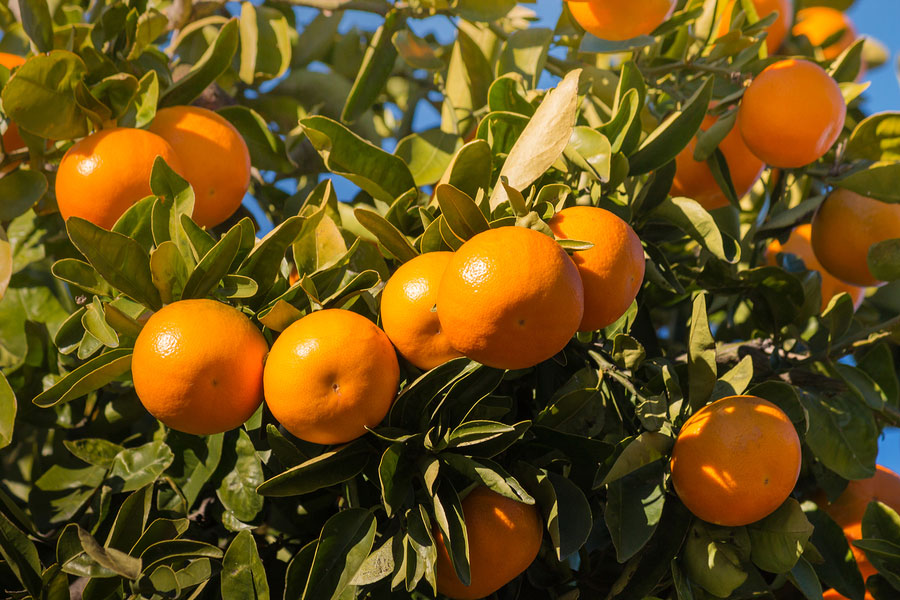Plant something that will not only bring you joy to look at, but that will yield something that may become a part of your everyday diet. The southeastern US is the perfect grow zone and climate for Satsuma trees. Satsuma oranges are thin-skinned, which makes them easy to peel. They are a member of the mandarin orange family, which are delicious, often seedless oranges that are also great to use in cooking.
Some of the amazing perks of Satsuma oranges are:
- Satsuma oranges are loaded with healthy antioxidants, which help prevent illness and disease.
- The carotenoids in this fruit can help prevent certain types of cancer.
- Mandarin oranges are chock-full of potassium, which helps maintain a healthy blood-pressure.
- Fresh oranges are excellent for maintaining young-looking and glowing skin.
- Satsuma oranges are a great source of dietary fiber, which may be helpful in weight-loss.
Enjoy the many benefits of fresh Satsuma oranges- right outside your door! Consider the following orange trees in your Charleston landscape:
Owari.
The Owari is a popular variety with weeping limbs and shiny foliage. This yields tasty fruit that have loose-skins and no seeds. Know that a full-size Satsuma can grow as tall as 15-feet, so consider dwarf plants when this is not a viable landscaping option.
Ponkan.
The Ponkan orange is super-sweet and larger, around the same size as a navel orange. It is really a cross between a mandarin and a pomelo, but is a high-yield Satsuma tree when planted.
Seedless Kishu.
The Seedless Kishu is smaller than the other varieties, approximately the size of a golf ball. This type of mandarin originated in Japan, and is considered one of the most delicious of all members of the mandarin family. These oranges are very fragrant and juicy, particularly appealing during peak season, November through January.
Brown Select.
Brown Select oranges are harvested a couple weeks earlier than other varieties, which makes them the first mandarin of the season. The trees are hardy and the flavor is comparable to that of the more-mainstream Owari fruit.
While all citrus fruits thrive best in sunny climates and conditions, the Satsuma family of oranges is hardy and can be grown in colder locations, too. If you don’t live in a region that is conducive to outdoor citrus trees, consider planting a hardy Satsuma in a large container or pot for an indoor harvest!
Talk to your only local garden & landscape design center in North Charleston to arrange planting of Satsuma oranges on your property. Imagine the joy of picking fresh fruit to serve to your family each day- without a trip to the market or grocery store! Use these suggestions to find a Satsuma variety that suits your climate and landscape, or to purchase dwarf Satsumas for indoor gardens.


